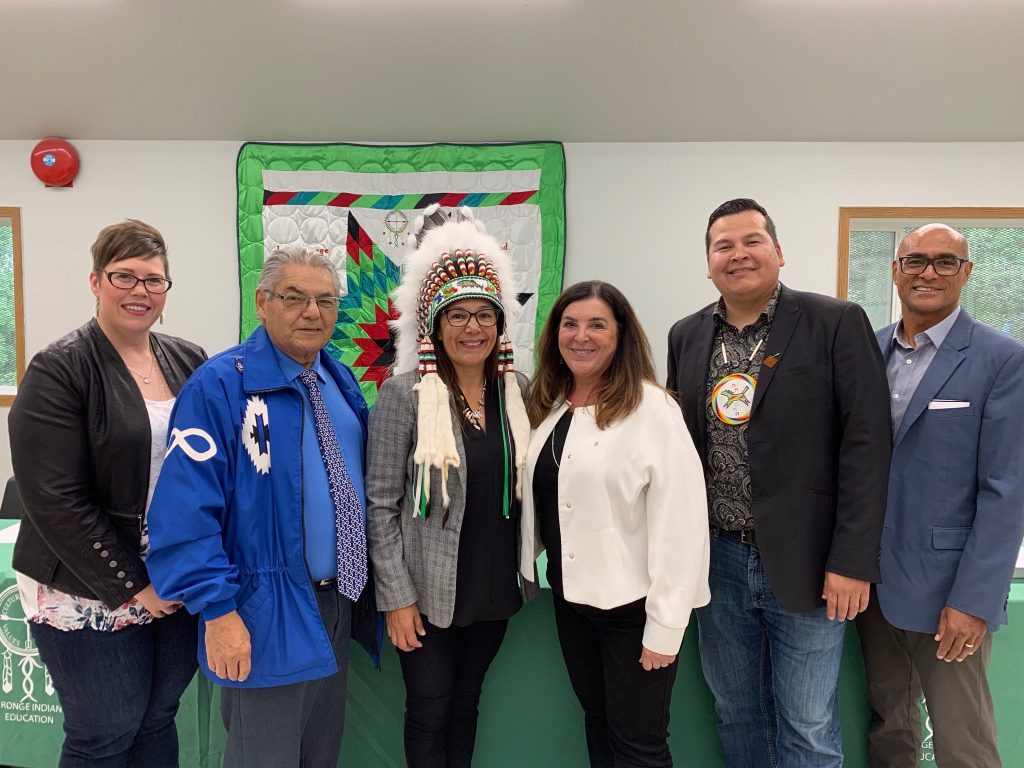
A new Northern Saskatchewan Indigenous Teacher Education Program (NSITEP) was launched on September 5, 2019, established in partnership between the Faculty of Education (University of Regina), Gabriel Dumont Institute (GDI), and the Lac La Ronge Indian Band (LLRIB). The four-year Bachelor of Education program with its first cohort of students who began in fall (2019) is accredited by the Faculty of Education, University of Regina. It intends to help meet the demand for more teachers, especially Indigenous teachers, in Northern Saskatchewan. Located on Far Reserve of the Lac La Ronge Indian Band in the Mikisew School, the program is well-positioned to meet the accessibility needs of students located in the North.
April Chiefcalf, one of two Instructors employed by NSITEP says, “A significant aspect of the program is its ability to serve both First Nations and Métis students in the area. An ongoing teacher shortage in Northern Saskatchewan exists and with the closure of NORTEP, it seems community-based programs that are a joint endeavour between Indigenous communities and universities are being created to fill that void. NSITEP will be unique because it will emphasize Indigenous languages, cultures and land-based education.”
Morris Cook, NSITEP Program Head and Instructor, says the program is “so beneficial not only to the community, but also for folks from the greater La Ronge area…When you put your hand on the pulse of the schools in the North, there is a shortage. It takes a long time to get folks into remote areas, but if they are local, they are more likely to stay. The hope is that the teachers from NSITEP will return to the community for the rest of their careers.”
For Dean Jerome Cranston of the Faculty of Education it is significant that the program was developed in partnership with the leadership of LLRIB, the Métis Nation of Saskatchewan (MNS), and GDI, and thereby designed specifically to meet the needs of the LLRIB and Métis communities to educate their own people to become teachers in their own communities. Cranston says, the Faculty’s involvement with this partnership, “demonstrates how the Faculty of Education and the University of Regina are committed to more fully realizing their relational obligation to First Nations, Métis and Inuit peoples. NSITEP recognizes the sovereignty of Indigenous peoples, places a premium on learning within community and is an attempt to better balance the typically asymmetrical relationships that have historically existed.”
With 20 students forming the first NSITEP cohort, and a lot of inquiries from potential students, Cook expects it will be easy to fill the 13 Métis/13 LLRIB student quota each new academic year. Cook is hopeful: “Its a great time for the program to be in place. I look forward to continuing the work that has been done to get this program off the ground, to building up the capacity and educating lots of local teachers.”
Follow us on social media